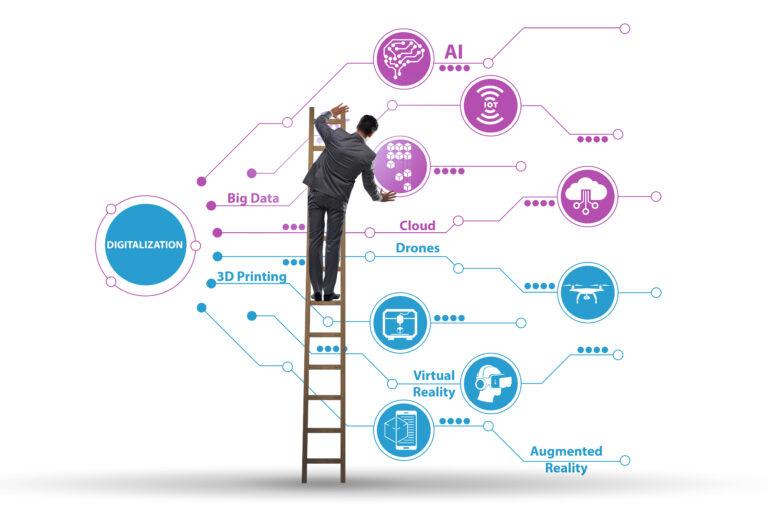
are you thinking about adding to your portfolio?
If you’re looking for a way to invest and diversify your portfolio, investing in a digital freight logistic software can make a nice addition to any portfolio. These types of investment opportunities have risen significantly in recent years as the transportation industry has had an increase in demand and is experiencing an annual 2%+ growth since 2016.
Transportation technologies and other digital-focused ventures have been gaining momentum from a rush of funding being provided by some big-name investment funds and institutional investors, taking early stakes in a few developing software companies. While companies are continuing to look for evolutionary ways to automate and streamline their supply chains and reduce overall expenses. These companies are increasingly turning to software to obtain their industry’s solutions.


What you should know
There are many benefits to these types of investments as they take advantage of proven business models in a booming industry. By using a combination of existing and new cutting edge technologies that include blockchain, analytics, AI algorithms, RFID technologies, while incorporating smart learning technology, with 5G wireless connectivity, and location-based services to provide the future of logistics software.
Investing in a transportation logistics software can offer a wide range of opportunities for businesses in industries that depend on these services such as Shippers, Carriers, Brokers, as well as many other companies that depend on the logistics industry to meet the growing demands of e-commerce, day to day operations, and global trade. These industries are comprised of a broad range of services including courier express, over the road, to last-mile delivery, it also encompass freight forwarding, storage, fulfillment, and other forms of freight transportation solutions.
Logistics and transportation companies are key sectors of the global economy, and have been in existence for centuries, easing the flow of goods in the world’s largest consumer market, creating pathways to deliver goods to consumers.
The future of these sectors depends solely on innovation. The transportation industry has been struggling to keep up with rising demands, costs from inflation, qualified personnel, and so much more. There are a variety of challenges going all the way to the extremes of COVID-19, new government regulations, and climate change. In addition, the industry needs to be able to deal with shifting customer expectations, personnel retention, and security.
The Digital Transformation of an industry
The digital transformation of the transportation and logistics industry shows that Logistics platforms can boost Shippers, Carriers, and Brokers profitability and production, while reducing overhead expenses, improving road safety, and cutting down co2 greenhouse emissions. However, the industry still faces challenges which include insufficient connectivity, flawed hardware and software system designs, AI shortcomings, and costs. Fortunately, these are obstacles that software developers are tackling.
Logistics companies have been turning to smart trucking applications, compared to manual methods as they boost visibility, efficiency, and it provides enhanced traceability for freight, by using RFID technology, analytics, and AI algorithms that can connect packaged goods with vehicles and transportation points, providing constant data throughout the journey. Which is important for third-party logistics professionals.

Logistics management software is also a smart way to ensure companies with in a B2B relationship stay in compliance and uphold road safety rules, while helping to connect companies with other companies and exchange data, it can also eliminate the risks involved with directly handling goods, as well as make it possible to receive real-time carrier rates, which helps to optimize workflow and streamline supply chains to improve the bottom line on a national and global scale.

What does all of this mean
These innovations help organizations create safe, traceable trails for their customers. Also, digital technologies can lower the risk of fraud and enable companies to better meet compliance standards. To meet the increasing demand for faster delivery, consumers want businesses to have real-time visibility into the status of their orders. Companies must stay on top of technology trends to keep a competitive edge. Also having a digital billing system eliminates the need for manual exchanges of paper and provides a record of payment status. This helps reduce the risk of payment fraud.
A good fleet management software can reduce overall maintenance costs and increase asset lifetime value and provide insights into fleet security and provide driver details.
A good freight management system can help manage order fulfillment at a high rate. It can also minimize the risk of mistakes by analyzing data to take the appropriate measures.
Digital solutions are improving the “client commitment experience” with data-driven decision making, which is essential for a real-time economy. This in mind, transportation and logistics executives make use of operational data to improve workflows and procedures. For instance, AI can divert shipments if there is a delay, and can ensure that shipments reach its destinations on time. Additionally, it can help reduce damaged cargo and prevent other potential losses and damages, just by changing routes.
“Internet of Things” (IoT) and other technological innovations can also enhance the digital performance in the transportation and logistics sector. IoT tools can increase efficiency by 10% to 15%. Increasing connectivity through IoT enables rapid exchange of information along supply chains. It can also help improve decision-making.
Conclusion
As a result, companies can perfect logistics costs and increase customer satisfaction scores. Which makes investing in transportation logistics software a no brainer. All you must do is find the company that is right for your portfolio.
